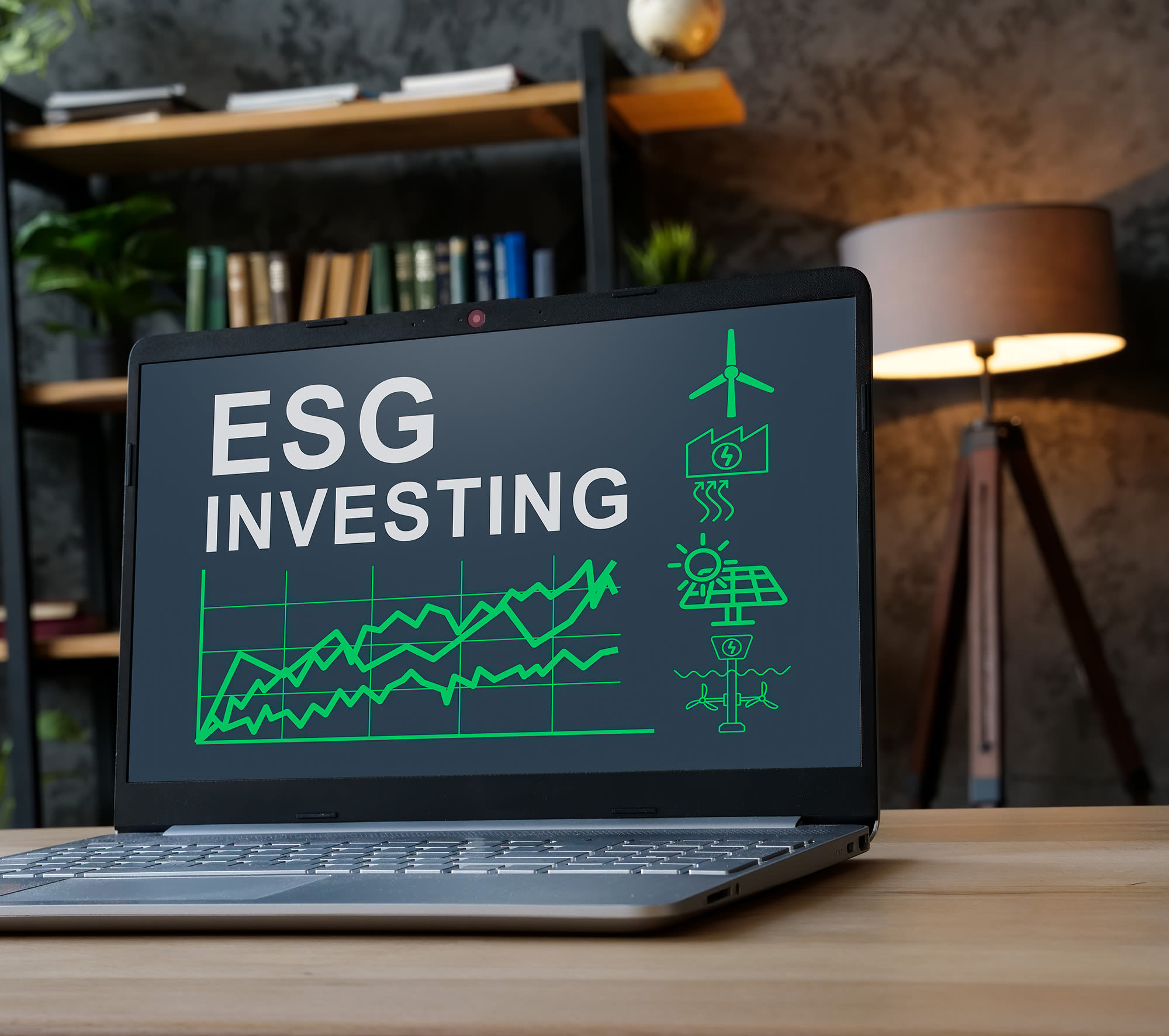Market performance over the last several quarters caused many of our Private Wealth clients at First Business Bank to ask about what some may consider alternative investment strategies. Specifically, there is great interest in Environmental, Social, and Governance (ESG) investing, taking advantage of short-term interest rates, emerging trends in retirement plan investing, and even cryptocurrency investing.
Here’s the latest from our Private Wealth team at First Business Bank about trends we’re seeing in investment strategies and our general observations and recommendations. First Business Bank’s Wealth Advisors are always available to meet with you one-on-one to listen to your priorities, overall wealth goals, and implement strategies in your portfolio that are in your best interest given the current economic volatility.
Recent History of Market Performance
First, here is some background about why we’re delving into the topic of alternative investing strategies. Inflation, driven by supply chain issues, the war in Ukraine, and the pandemic, reached a year-over-year change of 8.2% in mid-September 2022, after which the Fed announced another interest raise increase by 75bps to a federal funds rate of 3%-3.25% and indicated it plans to continue raising rates through 2023 to a terminal rate of over 4%.
Inflation, generally speaking, typically brings stock performance down because consumers spend less as prices rise. The main contributors to inflation have been food, shelter, medical care, new cars, and energy costs. The risk, though, is that consumers reduce their spending so much that we enter a recession, defined by the National Bureau of Economic Research (NBER) as a significant decline in economic activity spread across economy, lasting more than a few months, normally visibly in real GDP, real income, employment, industrial production, and retail sales. In the summer of 2022, we experienced two quarters of a decline in GDP, however, hiring was still strong, so the experts did not declare it a recession.
Even though the Fed’s actions have been consistent with its stated objectives, the markets are easily influenced by what is perceived as aggressive rate hikes because risk of a potential recession arises. In September 2022, the Fed’s comments committing to continued rate increases caused many to lose confidence in the stock market. However, some volatility is normal and interest rate hikes can create opportunities for investors.
Investing in Treasury Bills
For clients with short-term liquidity needs who want to explore opportunities to earn additional interest, we may recommend short-term Treasury bills or Certificates of Deposit (CD). Looking at their performance over the last four years, you notice a sharp incline on Treasury bill rates starting in early 2022. Currently, as of this writing in October 2022, the rate on a three-month Treasury is at 3.3%, and the rate on the same term CD is similar.
First Business Bank’s Investing Adjustments
At a high level as of October 2022, in our investment approach we have become more defensive on the equity side. Now we're starting to see some options in the fixed income market, which is actually welcome. For a long time, there was no alternative to investing in the stock market. Now, we’re taking advantage of short- to intermediate-term interest rates. High interest rates or rising interest rates, and higher-inflation environments, harm specific companies, especially growth-oriented ones. They had been performing very well in our portfolios over the last decade.
Earlier in 2022, we decided it was time to take those wins off the table and get into a more defensive position . We added some exposure in the portfolios to real assets, for instance, real estate and commodities, and also moving from growth-oriented companies to more dividend-oriented companies that have had lower volatility historically. Also we’re looking at companies that focus on returning money to shareholders versus putting it all back into the business. We think there are opportunities to make gains and protect against downside volatility with this strategy.
On top of shifting money from sector to sector, we also approved a brand-new strategy in alternatives that explores private markets with the goal to lower the overall correlation among the assets within our portfolio.
Making The Most Of ESG Investing
Essentially, ESG (environmental, social, governance) investing is investing with your values. Traditionally it was known as socially responsible investing and avoided a lot of the “vice” companies, like those involved in gambling, tobacco, and firearms. Over the decades, it evolved into an ESG framework.

Environmental: Companies that are strong in environmentalism and have robust green initiatives, are committed to a low carbon footprint.
Social: Businesses that embrace positive social initiatives like working on bridging the gender pay gap and promoting strong labor markets.
Governance: A commitment to a wide variety of corporate activities like board and management structures as well as a company's policies, standards, and other oversight and standards that keep the board and executives out of trouble.
You really need a balance of all three – some companies are great at the E and the G, but not the S. It’s also very important to look for strong investment options, then we filer them down more depending on how well they fit into that framework.
Greenwashing is a prevalent problem in the ESG market. It essentially means a money manager slapped the ESG label on their fund without actually conducting the due diligence. That allows their firm to charge higher fees or just look better in the public eye. Much of our due diligence is around the money manager themselves. We look for very clearly stated guidelines and principles as to how they manage their ESG funds and how they determine if a company is socially responsible. We want a very clearly stated process from all of our money managers to make sure that greenwashing isn’t happening and that, when you're investing in an ESG portfolio, you're actually investing in companies adhering to ESG principles.
We’re constructing our ESG portfolio to mirror our traditional portfolio with the same ratio of domestic equities to international equities; the same ratio of value stocks to growth stocks. We want those strategies to look the same, so once we know the general construction of that portfolio, then we just replace traditional funds with ESG funds. If ESG is important to you, we find the most tax-efficient* way to replace some of these funds, but especially in a 401(k) or an IRA, we’d switch traditional funds with ESG funds, not trying to duplicate different strategies.
ESG Investing In Retirement Plans
Retirement plans have used ESG funds for 25 years – more often known as socially responsible funds – and it’s usually driven by the makeup of the company and the company retirement plan sponsor. ESG funds are growing, so we offer a variety and provide a level of options. If you're an ESG investor, you've got equity and fixed-income options, and, at the same time, the menu of options caters to other people who aren’t necessarily driven by ESG.
In 2020, the Department of Labor issued a final rule that indicated fiduciaries of company retirement plans – our plan sponsors and First Business Bank — would be required to strictly apply the fiduciary duty of prudence under ERISA when considering investments that promote non-financial objectives that take into consideration ESG factors. The implementation of the 2020 rule was blocked in 2021 and the Department of Labor issued a proposed rule that clarifies the ability to consider ESG factors in the decision-making process. Today, we have a rule that is still open to debate before the final rule is published.
ESG Fund Performance
Historically, socially responsible funds lagged behind their traditional counterparts, especially during the 80s 90s and early 2000s. However, the financial crisis of 2007-2008 turned many things around when the Dodd Frank Act forced companies to increase public disclosures. As a result, more news was publicly available about companies, so that caused them to start flying right and clean up some of their business practices that could be seen as risky.
Secondly, as their popularity grew again after the financial crisis and more people wanted to put their money to work alongside their values, more fund managers put together ESG funds like Vanguard or BlackRock. They’re devoting more resources, more manpower, more time, to ESG strategies, which is only creating stronger ESG categories or strategies within the investable universe.
A Morgan Stanley study in 2021 showed that during the first half of 2020, the market was down 34% because of COVID. The study looked at traditional funds versus their ESG counterparts and, during that downturn in the market, ESG funds actually outperformed their traditional counterparts by about 4%. ESG funds outpaced general market by about 3% in the year 2021. The year 2022 was a different story. Traditional funds outperformed ESG funds because of oil companies – Exxon was up 50% at one point during the summer of 2022. Aside from that, we have seen outperformance from ESG funds compared to their traditional counterparts.
Trends In Company Retirement Plan Investing
One of the ongoing problem areas for employers is labor. We see more employers asking to review their current offerings to ensure they have the right eligibility, vesting schedule, and match — compared to competitors. We’ve been helping them shorten eligibility periods from nine to six to three months.
As you can imagine, volatility in the markets caused angst for some retirement plan participants, mainly from those approaching retirement or who just retired. The average 65-year-old person today has about half their money in the stock market and half in the bond market – that’s a balanced investor. We spend time talking to them about their distribution patterns when they reach retirement age.
We haven’t seen participants cut back their contributions at all, even though their after-tax income has been hit by higher prices across the board. Even in a market like this, continuing contributions is the best thing that you can do, even though it can be difficult when you see the market is down.
First Business Bank wants our retirement plan participants to be engaged in their retirement planning and saving, so we send paper statements while most of the industry sends electronic statements. Overall, the industry is more focused on income stream than your account balance at any given time. That’s why we emphasize it in financial planning, and if you’re aware of your retirement savings, you’ll have a handle on your income stream available to you in retirement.
As I mentioned earlier, the legal landscape of employee benefit plans and company sponsored plans is always in flux. Congress passed SECURE 2.0 at the end of 2022. This Act has over 92 different provisions that impact retirement plan. Among the most notable are provisions that increase the RMD age to 73 beginning in 2023, allow employers to offer matching or profit sharing contributions as Roth contributions and a requirement that catch-up contributions receive need to have Roth treatment for participants above certain income thresholds. The Act is designed to encourage increase savings and coverage for today’s workforce and ease the administrative burden for employers. Under SECURE 2.0, many of the effective dates of the provision were pushed out to 2024 and beyond.
Investing In Cryptocurrency & Private Markets
We've seen an increase in interest among our clients asking about investing in cryptocurrency as it makes it into the headlines. From our perspective, as we're constructing portfolios, we don't necessarily see cryptocurrency as a long-term type of income-generating strategy, necessarily. We understand that it’s out there, and it's hard to imagine that blockchain technology and cryptocurrencies are going anywhere. However, we're not exactly sure what they’re going to look like, for instance, 20 years from now. We're trying to learn more and more about what we can to prepare for situations down the road, for instance, if somebody inherits crypto-coin, but we're not trying to be a leader in the space now.
A direction we’re moving into, to provide clients with another avenue to allocate money, is more toward the private space, such as:
- Private equity
- Private credit
- Private real estate
- Infrastructure
- Managed Futures
We’re following some trends that are generally considered to be outside of the standard public equity and public bond markets. Looking ahead, there are some advantages of those. We don't know where the bottom of the stock market is and we anticipate volatility will stick around for some time. One of the ways to try to mitigate some of the swings is looking for areas in the investment market that are not correlated to typical public stocks and bonds, which is where alternative investments come in.
The Value of Professional Investment
Our experienced Private Wealth team conducts rigorous due diligence on alternative investments to provide more confidence to our clients that they will perform as expected. While not guaranteed, working with a Private Wealth team like First Business Bank, you get peace of mind that a team of career professionals are guiding your portfolio and have your best interests in mind.
*Consult a certified tax professional for specific information about your portfolio.




